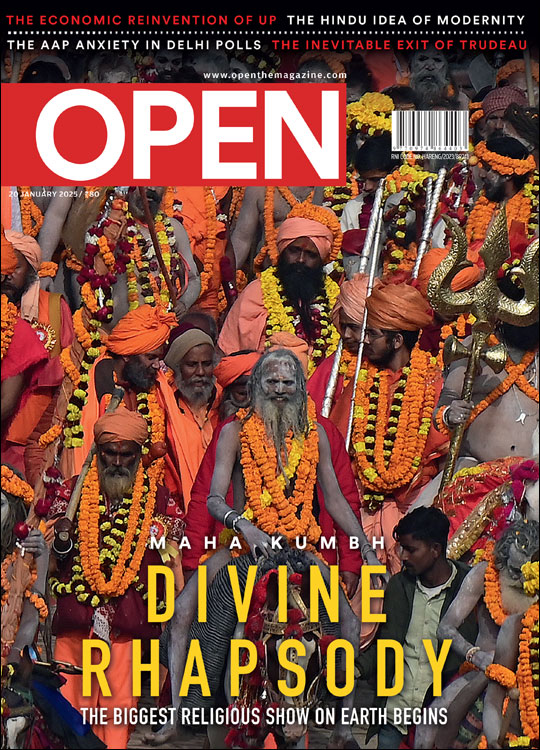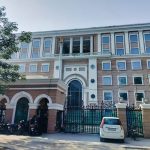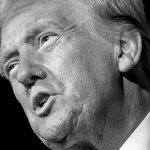Henry Kissinger: The Soft Power of Super K
A portrait of the world’s most influential diplomat as an idealist. Niall Ferguson in his magisterial biography of Henry Kissinger discovers the intellectual who preceded the statesman
 Srinath Raghavan
Srinath Raghavan
 Srinath Raghavan
|
19 Nov, 2015
Srinath Raghavan
|
19 Nov, 2015
/wp-content/uploads/2016/01/20122.kissinger1.jpg)
In the spring of 1969, soon after President Richard Nixon had appointed Henry Kissinger as his National Security Advisor, the Indian periodical Quest carried a long essay titled ‘The Thought of Kissinger’. Written by the lawyer and foreign policy commentator, AG Noorani, the essay was admiring in its tone and content. Kissinger’s appointment, Noorani wrote, was ‘universally acclaimed’: ‘The academic community was delighted, the Europeans were relieved, the press wholeheartedly approved and the politicians voiced no objection. It was a striking proof of the respect and authority the professor had acquired in a little over a decade.’ The essay presented a thoughtful exposition of Kissinger’s writings on world politics and US foreign policy, underlining the point that he was ‘essentially a political philosopher steeped in history and alive to its lessons.’ Noorani acknowledged Kissinger’s generally unsympathetic stance towards non-aligned countries, yet observed that he was ‘a man of enormous self- confidence who feels free to revise his notions. His superb equipment and keen analytical intellect lend him an assurance which has been mistaken for intellectual arrogance. But he has shown in the past a willingness to revise opinions which smaller men do not and cannot possess.’
This little-known essay from a long defunct journal is worth exhuming for a couple of reasons. In the first place, it shows that Kissinger enjoyed a global reputation even before he entered the Nixon White House, albeit one that was confined to the cognoscenti. This was not just due to the impact and influence of his ideas, but also the fact that Kissinger had since the early 1950s brought several Asian as well as European intellectuals and politicians to the Harvard International Seminar—a three-month residential programme. Noorani was among those who had attended it.
More importantly, the essay points to the importance of understanding Kissinger’s early career on its own terms, without the distorting impact—negative or positive—of our appraisal of his performance in office. Noorani belonged to a generation of Indians who would turn sharply critical of Kissinger after the Bangladesh crisis of 1971, when the Nixon and Kissinger ‘tilted’ towards the murderous military regime in Pakistan. This was, of course, part of the global notoriety that Kissinger would acquire during these years. The challenge for any biographer of Kissinger is to peer through the flat glare of hindsight and find the intellectual that preceded the statesman.
Niall Ferguson has risen to the task magisterially. The first volume of his life of Kissinger (Kissinger: 1923–1968: The Idealist, Allen Lane, 1,008 pages, Rs 1,799) covers the period up to his subject’s appointment as National Security Advisor in January 1969. This is an ‘authorized’ biography inasmuch as it was written with the full cooperation of Kissinger, including access to all his private papers and with interviews conducted over a decade. Yet it is hardly an uncritical, let alone hagiographic, account. Ferguson was apparently not Kissinger’s original choice for writing this biography. Indeed, in his extraordinarily prolific and wide-ranging historical oeuvre—no fewer than 12 hefty tomes in the past two decades—Ferguson has not written much on the Cold War. Still, in some ways he seems uniquely suited to the task.
For one thing, few biographers can match his grasp of the German-Jewish backdrop to his subject’s early life. Starting from his first book on Germany’s long descent into hyperinflation in the 1920s to his massive study of the Rothschilds and his more recent biography of Siegmund Warburg, Ferguson has approached this fraught area of history from a variety of angles throughout his career. For another, unlike many biographers, Ferguson is fundamentally an analytical historian. Although he is one of the most popular historians writing today, Ferguson has never succumbed to the simple charms of a well-told narrative. In consequence, his biographies do a much better job than most of illuminating the times as well as the life of the subject. This is particularly important with someone like Kissinger who was among the most polarising figures of his times—one that continues to evoke admiration and denunciation in about equal measure.
Ferguson begins the book by rehearsing the case for prosecution at some length. To critics like Christopher Hitchens, Kissinger was an odious man who ought to be arraigned for war crimes: Argentina, Bangladesh, Cambodia, Chile, Cyprus, East Timor—the list of places that bore the brunt of policies advocated and adopted by Kissinger is long. This stance is mirrored in popular culture in America and beyond. As Eric Idle’s song for Monty Python went:
Henry Kissinger,
How I’m missing yer,
You’re the Doctor of my dreams.
With your crinkly hair,
And your glassy stare,
And your Machiavellian schemes
Kissinger, Ferguson rightly notes, seems like an American Widmerpool: at once hateful and unstoppable (though this reference to a character from Anthony Powell’s novels might elude most of his American readers). To his admirers, on the other hand, Kissinger remains ‘Super K’—the diplomatic superstar who transformed great power politics of the Cold War and was among the most popular personalities of the early 1970s. And he continues to be the elder statesman and sage for much of the US foreign policy establishment.
Ferguson strikes an unnecessarily defensive note in these opening pages. Kissinger was, for better or worse, among the most significant and consequential figures of the late twentieth century. He would merit a major biography even if he were not the object of such widespread detraction and adulation. The real challenge is to say something new about a man every aspect of whose public life has been subject to minute scrutiny by contemporaries, journalists and scholars alike. Kissinger himself has written three volumes of his memoirs—each running to over a thousand pages—besides penning other books that draw on his experience of geopolitics during the Cold War. Is there much more to be said?
As it turns out, Ferguson does have a novel take on his subject, especially on Kissinger’s formative years. This stems partly from the prodigious research that undergirds the book: apart from nearly 150 boxes of hitherto untapped letters, notes and diaries of Kissinger dating back to the 1940s, Ferguson and his researchers have laboured in over a hundred archives across the world. Contrary to the widely held view of Kissinger as an arch realist obsessed with material power, Ferguson argues that the young intellectual was an idealist. Not in the Wilsonian sense of pursuing certain ideals in international politics, but in the Kantian sense of holding that ‘we can never be certain whether all of our putative outer experience is not mere imagining’ since ‘the reality of external objects does not admit of strict proof’. Following the historian Peter Dickson, Ferguson underlines the impact on Kissinger of Kant’s philosophy history—including a qualified acceptance of the Prussian philosopher’s claim that the hidden purpose of history was to move humanity towards a peaceful, law-abiding community of republican states.
This overarching argument is embedded in the story of the first half of Kissinger’s life explicitly presented as a bildungsroman: ‘a tale of an education through experience, some of it bitter.’ Ferguson’s decision to study this part of Kissinger’s life at such length cuts against the latter’s own disavowal of the importance of his early experiences. This book shows, however, that Kissinger did not spring fully formed from anyone’s forehead. At the same time, Ferguson punctures some facile claims that have been advanced by earlier scholars: that Kissinger’s realpolitik rose from his experience of the weak Weimar state (he was just about ten years old then), or that he was merely a product of the Cold War nexus between the American state and universities.
Born in May 1923 to a middle-class Jewish, patriotic German family in Furth, ‘Heinz’ Kissinger’s first years seemed to pass unremarkably. Ferguson, however, highlights the larger historical currents that swirled around the boy: the devastating impact of the defeat in World War I; an economy spinning out of control; and the rise of radical politics to the right as well as the left. Like most German Jews, the Kissingers watched the advent of Hitler with mounting dismay. But they did not seek to leave their homeland until the deadly Kristallnacht—the night of broken glass—in November 1938 when the Nazis swooped down on Jews in massive and coordinated attacks.
Although the family was lucky to make its way to America, the experience of Nazi Germany seared into Kissinger’s youthful political consciousness. There is no straightforward leap from this to his later political beliefs, yet Kissinger’s subsequent conservatism was tinctured by the experience of Germany in the 1930s. In 1954, at the height of anti-communist hysteria whipped up in the United States by Republican Senator Joseph McCarthy, Kissinger would write to his friend, the historian Arthur Schlesinger Jr: ‘We are witnessing it seems to me, something that far transcends McCarthy, the emergence of a totalitarian democracy… It took some of the best elements in Germany six years after Hitler came to power to realize that a criminal was running their country which they had been so proud of considering a moral state…The real problem it seems to me right now is…to convince the conservative element that true conservatism at the moment requires at least opposition to McCarthy.’
Equally revealing is Ferguson’s treatment of Kissinger’s years in the US Army as a lowly soldier in World War II. The latter’s notes and letters from this period make for some of the most arresting sections of the book. Entering Germany as part of the Allied invading forces in late November 1944, Kissinger wrote to his parents: ‘So I am back where I wanted to be. I think of the cruelty and barbarism the people out there in the ruins showed when they were on top. And then I feel proud and happy to be able to enter here as a free American soldier.’ Kissinger was part of an army intelligence team tasked with smoking out German civilians who worked with the Nazis. ‘It is tragic,’ he wrote, ‘no matter how [much] you hate the Germans. A suit-case in one hand, a handkerchief in the other, people part…[But] They are not mistreated. We are no Gestapo.’
When his father urged him to be ‘tough’ with the Germans, Kissinger replied, ‘I am tough, even ruthless, with the persons whose participation in the party is responsible for all this misery… But somewhere this negativism must end, somewhere we must produce something positive or we’ll have to remain as guardians over chaos, forever.’ To his men, Kissinger insisted that “We must … prove to the Germans by the firmness of our actions, by the justness of our decisions, by the speed of their executions that democracy is indeed a workable solution.”
More striking is Kissinger’s reaction on liberating Jews from the concentration camp of Ahlem near Hanover. In a note titled ‘The Eternal Jew’, 22-year old Kissinger struggles to come to grips with the dehumanisation wrought by the camps: ‘That is humanity in the 20th century. People reach such a stupor of suffering that life and death, animation or immobility can’t be differentiated any more. And then, who is dead and who is alive, the man whose agonised face stares at me from the cot or Folek Sama, who stands with bowed head and emaciated body? Who was lucky, the man who draws circles in the sand and mumbles ‘I am free’ or the bones that are interred in the hill side?’ The Kissinger that emerges from these pages should give pause to anyone who thinks they know their man.
The inwardness of such reflections proves difficult to replicate as Ferguson moves on to Kissinger’s post-war passage through Harvard. But here, too, Ferguson paints a deft backdrop of the emerging Cold War and its impact on American public life as well as a detailed account of undergraduate life at Harvard (where he taught until recently). Kissinger was voracious in his scholarly appetite but also ambitious and a tad pretentious. His senior thesis titled ‘The Meaning of History’ ran into 388 pages—the longest ever thesis written by a Harvard undergraduate and one that led to the imposition of 35,000-word limit. Although Kissinger focused primarily on the ideas of Spengler, Toynbee and Kant, he also took in a range of figures from the Western literary and political canon: Dante and Descartes, Virgil and Vicco, Hobbes and Hegel, Goethe and Dostoevsky, among others. Although it got Kissinger a Summa grade, Ferguson rightly observes that ‘it is unmistakably, a young man’s book: an exercise in academic exhibitionism, marred jejune slips’. Nevertheless, Ferguson insists that it was an exercise in idealist philosophy of history and that the encounter with Kant shaped Kissinger’s outlook towards world politics.
Kissinger’s doctoral thesis was a mature piece of scholarship. Against the winds of fashion blowing through mid- century American political science, Kissinger chose a historical topic for his dissertation: a study of the European politics in the early 19th century centred on the peace of Vienna. No one in the Government department at Harvard had any expertise in this area and the choice of the topic was driven purely by Kissinger’s interests. The dissertation, subsequently published as Kissinger’s first book A World Restored, was Ferguson claims ‘a remarkable piece of work’. Yet he overlooks the fact that its strengths did not lie in the depth of its historical scholarship. For a doctoral thesis, there was a surprising absence of any archival work. Even Kissinger’s overall interpretation of the Vienna system—as a conservative restoration after the ravages of Napoleon—echoed the conventional wisdom. We only have to compare the book with Paul Schroeder’s Transformation of European Politics—undoubtedly the most impressive work of international history published in the last three decades—to see how commonplace it was as historical scholarship. Kissinger’s real strength lay in his ability to move from the specifics of a historical situation to a more general set of reflections about the nature of international relations, about the balance between power and legitimacy, and about individual choices and structural constraints. Yet the book sank almost without trace in the academia. It was published not by an American university press but under a British trade imprint.
During these years, Kissinger was also busy securing a toe-hold in the zone where academic and policy worlds intersected. Thanks to his mentor at Harvard, he was able to take on the organisation of the International Seminar. At the same time, he assumed the more ambitious role of editing a new quarterly journal, Confluence. Both these activities were part of the cultural Cold War financed by American foundations such as Ford. The extent to which the CIA bankrolled these undertakings has been much speculated upon. Ferguson shows that the CIA took scant interest in Kissinger’s publication and even regarded Confluence as a bit of a ‘boondoggle’. The main advantage for Kissinger was the access that these activities provided to European and Asian public intellectuals and politicians.
Shinning up the academic ladder proved rather more difficult for Dr Kissinger. Such was the conservatism of a leading university like Harvard that he could not secure a regular assistant professorship and had to make do with a series of temporary appointments funded by small research grants from the Rockefeller Foundation. Ferguson cites an entertaining later exchange between Kissinger and Nixon, where the former observes: ‘In academic life you are entirely dependent on the personal recommendation of some egomaniac. Nobody knows how good you are. Hell, I at Harvard—in ’54 at Harvard, I was always an oddball, I was in that sense an outsider. I had one hell of a time…My first book … was about 19th Century diplomacy and the average person wasn’t that interested in it…It was a very thoughtful book.’
Although Kissinger intended to follow up with another book on Bismarck’s diplomacy— and even wrote up large chunks of it—he quickly switched gears to more policy-oriented topics. And no topic was hotter during the early Cold War than nuclear strategy. Ferguson shows that from the mid- 1950s, Kissinger’s bold notes on the subject had begun to attract the attention of senior figures such as the dean of Harvard, McGeorge Bundy, who would in time become national security advisor under Kennedy.
The most important break, however, came by way of the chance to participate in a Council on Foreign Relations task force reviewing US nuclear weapons policy. Drawing on the deliberations of an experienced group of military and civilian participants, Kissinger was asked to write a book on the subject. Published as Nuclear Weapons and Foreign Policy in 1957, the book catapulted Kissinger to fame as a policy analyst and strategic thinker. Ferguson notes that Kissinger found the writing hard going because ‘the ideas in it were not all his own… he had been asked to synthesize the disparate and indeed contradictory views of a study group.’ The central and most controversial point of the book was the need for the United States to move from a reliance on massive retaliation to using tactical nuclear weapons against the variety of threats posed by the Soviet Union. Ferguson rightly dwells on the range of problems in Kissinger’s arm-chair theorising; though he may have noted that many of these stemmed from Kissinger’s complete unfamiliarity with modern land warfare. More importantly, the call for a more flexible response posture involving tactical nukes was hardly original. Here as later in his career as a policy analyst, Kissinger was a bit of a weathervane—shrewd in anticipating the shifting mood and skilled in presenting the emerging consensus in its sharpest form. As the late Philip Windsor cattily put it, in a world of specialists passing off as generalists, Kissinger was a generalist masquerading as a specialist.
The success of the book had a three-fold impact on Kissinger’s career. He became an intellectual celebrity in American policy circles: Senator John F Kennedy was already dropping his name in speeches in 1958. The book also made him well known in European policy circles. Even a cursory comparison of the writings of his British contemporary and friend Michael Howard will bear out the influence of Kissinger’s ideas across the Atlantic. Above all, the book drew him close to Nelson Rockefeller—the perennial runner- up in Republican primaries, whose political connections and patronage where nevertheless very important to Kissinger in the 1960s.
The last third of Ferguson’s book covers well-trodden territory: the crises in Berlin, Cuba, Laos and Vietnam. As a part-time consultant to the Kennedy and Johnson administrations, Kissinger appears—very like a Graham Greene character—to have had a ringside view at all the important moments in this tumultuous decade. The most interesting revelation from this period is Kissinger’s growing doubts about American involvement in Vietnam from 1965 onwards—qualms that he massaged in his notes to the administration and entirely suppressed in his public statements. This will come as a surprise to those who recall Kissinger’s defence of US policy being blown apart by Tariq Ali’s pyrotechnic polemics during the famous Harvard vs Oxford televised debate of December 1965.
Indian readers will also be interested to learn about Kissinger’s trip to New Delhi in late 1961, shortly after the Indian invasion of Goa. His record of a meeting with Defence Minister VK Krishna Menon is worth quoting: ‘All his [Menon’s] assistants seemed to be in a state of terror. I was shown in, bowing and scraping, to his office. He greeted me at the door, took me by hand, and led me to an easy chair. The Chief of Staff of the Indian Air Force was in the room. Krishna Menon turned to him and bellowed some instructions. The impression was unavoidable that the whole scene had been staged for effect.’ The meeting with Nehru was more sedate, but it ended in a revealing exchange: ‘I … asked him whether India would sign a disarmament agreement to which Communist China was not a party. He said that it seemed to him impossible for India to do this. I asked him whether this applied even to nuclear disarmament. He replied evasively, but indicated that it might.’
The book ends with Kissinger’s oft-questioned role in derailing peace talks with North Vietnam during the American presidential election of 1968. Ferguson goes to numbing lengths to clear Kissinger of the charge. This reader was persuaded by his account, though given the gaps in evidence others will have to make up their mind about it.
As one puts down the volume, it is quite clear that Ferguson has succeeded in giving us a very well-told and frequently surprising portrayal of Kissinger’s personal, political and intellectual passage from childhood in Germany to the doorsteps of the Nixon White House. A principal flaw of the book is its inordinate length: 800 pages on the first half of Kissinger’s life is at least a third too long. Yet, Ferguson’s accomplishment is very considerable. He has set a standard for research, interpretation and readability that will be a hard act to follow in the second volume covering the remaining years of Kissinger’s life. For this part of the story is quite well known. More importantly, every square inch of this historical terrain is hotly contested between Kissinger’s critics and admirers. Coming up with a comparably fresh treatment of this period will undoubtedly tax Ferguson’s skills as a biographer. All the same, the next instalment will be worth waiting for.

/wp-content/uploads/2025/01/Cover_Kumbh.jpg)











More Columns
Cong Gets A New Address, 9A Kotla Marg Short Post
The 90 Hour Work Week Equation Madhavankutty Pillai
The Arctic Great Game Sudeep Paul